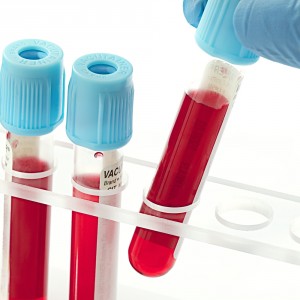 In inflammatory arthritis, autoantibodies rheumatoid factor (RF) and anti-citrullinated protein antibody (ACPA) have been associated with poor outcomes, such as increased disease activity, radiographic progression and disability. A new study entitled “Rheumatoid factor and anti-citrullinated protein antibody positivity, but not level, are associated with increased mortality in patients with rheumatoid arthritis: results from two large independent cohorts” investigated the association between mortality and positivity, and levels of RF and/or ACPA in patients with early inflammatory arthritis (EIA). This study was published in Arthritis Research & Therapy by Jennifer H Humphreys, a member of Dr. Suzanne MM Verstappen’s group from the Arthritis Research UK Centre for Epidemiology, Manchester Academic Health Science Centre, University of Manchester, Manchester, UK, and colleagues.
In inflammatory arthritis, autoantibodies rheumatoid factor (RF) and anti-citrullinated protein antibody (ACPA) have been associated with poor outcomes, such as increased disease activity, radiographic progression and disability. A new study entitled “Rheumatoid factor and anti-citrullinated protein antibody positivity, but not level, are associated with increased mortality in patients with rheumatoid arthritis: results from two large independent cohorts” investigated the association between mortality and positivity, and levels of RF and/or ACPA in patients with early inflammatory arthritis (EIA). This study was published in Arthritis Research & Therapy by Jennifer H Humphreys, a member of Dr. Suzanne MM Verstappen’s group from the Arthritis Research UK Centre for Epidemiology, Manchester Academic Health Science Centre, University of Manchester, Manchester, UK, and colleagues.
In this study, the research team sought to understand the impact of positivity and levels of RF and/or ACPA in patients with EIA on mortality in two large prospective cohorts of patients with EIA, care of the Norfolk Arthritis Register (NOAR) in the UK and the Leiden Early Arthritis Clinic (EAC) in the Netherlands. The designation EIA included all patients with RA in an early stage of the disease process, and patients who may later go on to meet the recognized classification criteria for rheumatoid arthritis (RA). The study included 4,962 patients, where 64% were female. In the NOAR and EAC cohorts the median age at EIA onset were, respectively, 56 and 54 years, and the patients were 35% and 42% positive for ACPA/RF, respectively, in NOAR and EAC.
The researchers found that positive levels of RF and ACPA were predictors of increased mortality in the two cohorts of EIA, the NOAR and EAC, and its sub-group of patients with RA. Notably, the presence of the two antibodies, RF and ACPA, rather than higher levels of the antibodies, was a stronger indicator of mortality than just one single antibody positivity. However, the association between increased antibody level and mortality was not consistent between the two cohorts.
The authors concluded that in clinical practice, positivity of RF and ACPA may be more important and reliable indicators, compared to determining antibody levels in assessing the mortality risk in patients with early rheumatoid arthritis.


